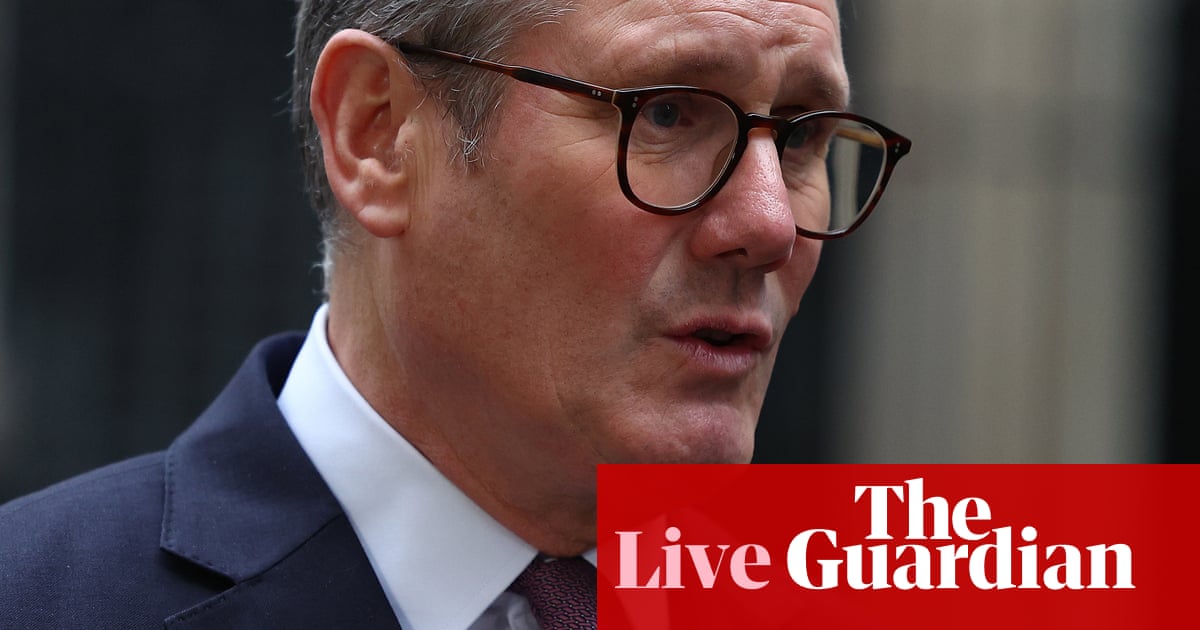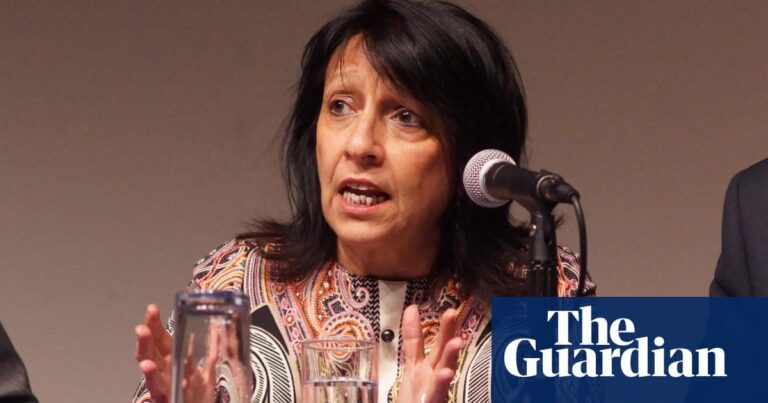
Darren Jones, the chief secretary to the Treasury, has described today’s fall in inflation (see 9.36am) as “welcome news”. But, in interviews, he also warned there would be “hard” choices in the budget.
Asked whether he could rule out real-terms spending cuts for crucial public services, Jones replied:
We’re setting budgets for public services at the end of October for one financial year, 25/26.
We will not be returning to austerity and we will present an honest set of spending plans that deal with the £22bn black hole that we inherited from the previous Conservative government.
That will be hard, but it’s the right thing to do and it’s the start of the period of change under this Labour government that will see better public services over the years ahead.
Inflation in the UK has fallen to its lowest level in three and a half years, giving a pre-budget boost to Rachel Reeves as expectations grow for the Bank of England to cut interest rates. Richard Partington has the story here.
Ben Zaranko, an economist at the Institute for Fiscal Studies, is complaining about the use of the term “black hole” in budget commentary. He posted this on social media.
I hate the term ‘fiscal black hole’. It’s especially unhelpful and confusing when it’s used interchangeably to mean both:
1) an in-year overspend (in 2024/25); and
2) the amount by which the government is on track to breach its self-imposed fiscal rule (in 2029/30)
Good morning. Governments engage in expectation management, and the latest example is on the front page of the Financial Times this morning, where there is a story saying Rachel Reeves, the chancellor, has identified a “£40bn funding gap” as she prepares the budget, which is happening a fortnight today. In their story George Parker and Sam Fleming report:
UK chancellor Rachel Reeves has identified a £40bn funding gap ahead of her Budget in two weeks — far more than previously expected — as she prepares big tax rises to patch up the NHS.
The figure represents the funding that Reeves needs to protect key government departments from real-terms spending cuts, cover the enduring impact of an annual £22bn overspend and build up a fiscal buffer for the remainder of the parliament.
The Financial Times has been told by officials close to the budget process that the Treasury is seeking ways of closing a shortfall of £40bn, with tax rises set to form the centrepiece of her response.
The FT also points out that Reeves told cabinet colleagues yesterday the budget would require “difficult decisions on spending, welfare, and tax”.
A “funding gap” is what is otherwise described as a black hole in the accounts, and it can be hard to keep track of what the best black hole estimate is because the figures keep changing. Here is a quick recap.
The £22bn black hole: In a statement to MPs in July, Reeves said the Treasury had identified a £22bn gap (difference between the amount the government would have to spend, and the amount actually set aside for spending) in the in-year accounts (ie, for for the 2024-25 budget).
The £100bn black hole: At the time Reeves present the £22bn as principally a problem for the current financial year. But, as Pippa Crerar reports today, she is now telling colleagues that the £22bn gap applies in years going ahead, which adds up to a £100bn black hole over the next five years.
The up to £20bn future black hole generated by unrealistically low spending allocations for the years ahead: During the election campaign the Institute for Fiscal Studies (IFS), and other thinktanks, repeatedly warned that the pending figures set by the Tories for the next five years were implausibly low, and that in practice governments would have to spend between £10bn and £20bn a year more to stop public services collapsing. This black hole is in addition to the £22bn 2024-25 one identified by Reeves.
In an interview with the Today programme this morning, asked about the Treasury’s new £40bn funding gap figure (which government sources have confirmed to the BBC), Paul Johnson, director of the IFS, did not dispute the figure. He said that a “significant amount of additional tax” would be needed, but he said he did not expect taxes to rise by £40bn a year. He said:
If we get tax rises on that scale [£40bn], that really would be extraordinary, I mean unprecedented. That would be tax rises sort of three times as big as George Osborne, for example, introduced back in 2010 in the depths of the aftermath of a financial crisis.
But that said that, if you are as the government wanting to not just protect public services, but significantly increase spending on the health service and increase spending on other things in line with the size of the economy, yes, there is a very big hole in the public finances.
Now, of course, we’ve always known this. We’ve had this discussion through the election, when we [the IFS] were warning that there were these problems, and Keir Starmer and others were going, ‘No, no, no, there’s no such issue’.
Now, £40 billion is a big number. You can get there relatively easily, actually, in terms of the scale of additional spending that will be required down the line. Some of that be covered by slight changes in the fiscal rules. Some of that will be covered by some of the tax rises that the Labour party are already intending. But that would still leave a significant amount of additional tax revenue required.
Figures like the £40bn one don’t end up in the FT, and on the BBC, by accident, and at this stage in the budget cycle most government budget-related communication is best understood as expectation management.
But expectation management can mean two things. It can mean exaggerating how bad things are likely to be, so that on the day voters are pleasantly surprised. But it can just mean dripping out difficult news very slowly, so that when it finally does get confirmed and announced, it is not as much as a shock as it might have been. It is hard to be sure, but what the Treasury is up to now is probably for of the latter than the former.
Here is the agenda for the day.
10.30am: Robert Jenrick, one of the two Tory leadership candidates still in the contest, is giving a speech on the economy.
Noon: Keir Starmer faces Rishi Sunak at PMQs.
After 12.30pm: MPs debate a Lib Dem opposition day motion calling for various measures to end the carer’s allowance scandal, including writing off existing overpayments.
If you want to contact me, please post a message below the line (BTL) or message me on social media. I can’t read all the messages BTL, but if you put “Andrew” in a message aimed at me, I am more likely to see it because I search for posts containing that word.
If you want to flag something up urgently, it is best to use social media. I’m still using X and I’ll see something addressed to @AndrewSparrow very quickly. I’m also trying Bluesky (@andrewsparrowgdn) and Threads (@andrewsparrowtheguardian).
I find it very helpful when readers point out mistakes, even minor typos (no error is too small to correct). And I find your questions very interesting too. I can’t promise to reply to them all, but I will try to reply to as many as I can, either BTL or sometimes in the blog.
Source: theguardian.com


















